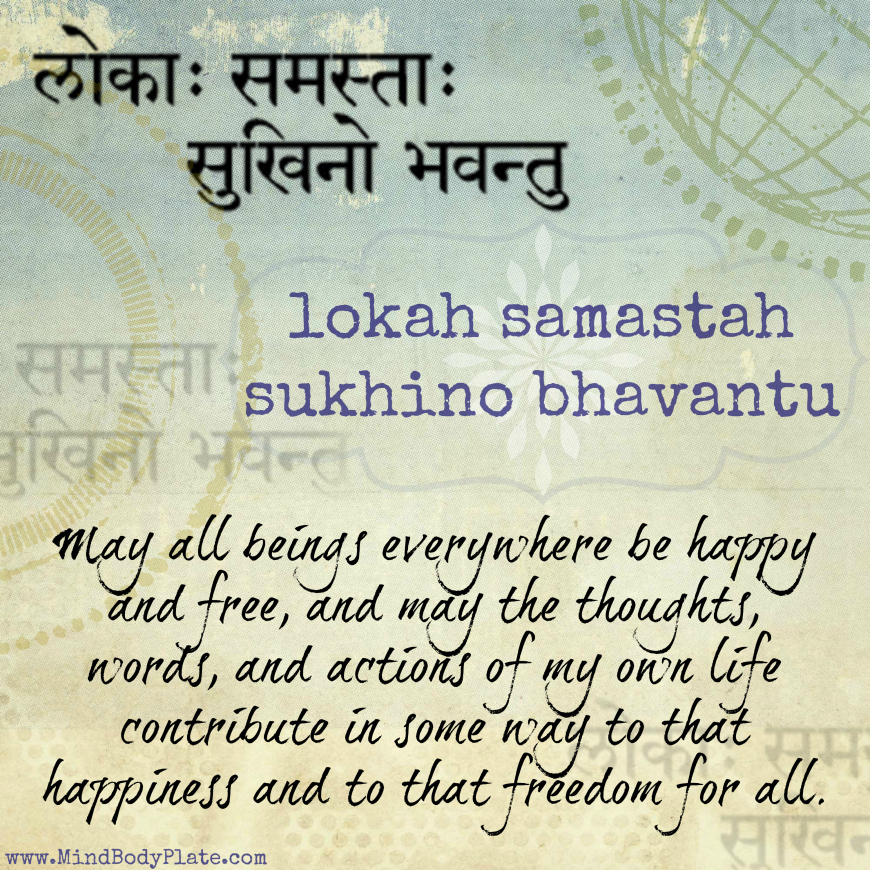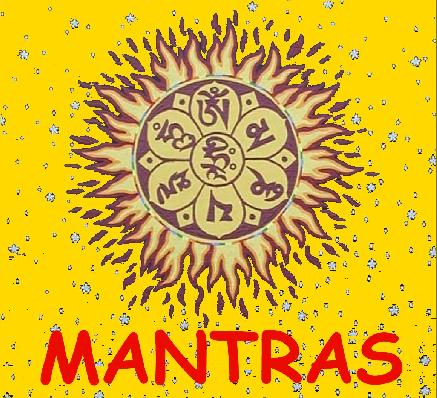
Mantra Monday: Lokah Samastah Sukhino Bhavantu

Mantra Monday
Lokah Somastah Sukhino Bhavantu
In the past, I’ve spoken about how important mantras are in our practice, and how powerful they are and can be when treated with the respect they deserve. Mantras are a regular part of my practice and have helped to transform my life, and the way I see the world. Because of this, I have made mantras a central element of my music. In my new series, Mantra Mondays, I will be covering a mantra each Monday for the next two months. Each post will tell a little about its history and importance in my life. Each one of these mantras has a powerful connection to my music.
What is a mantra?

In this post, I outlined my three favorite mantras and gave a brief overview of the history of mantras. To refresh,
The word “mantra” has two main components: man, a Sanskrit word meaning mind, and tra, meaning instrument. Therefore, a mantra is an instrument of the mind. Mantras, which have been around for thousands of years, often take the shape of a word or syllable(s), the most famous of which is Aum / Om, or a series of words.
Mantras are ancient tools utilized to draw the power of the cosmos into the individual. They empower us to live our lives more honestly and fully, and help us spread our experiences of health, happiness, and wellth to others. When coupling mantras with music, the power of both increases exponentially. It is why I make mantras a central part of many of my songs: to bring light to the yogic practice and guide others through their practice and into the world. These sound waves, and our actions, echo into the cosmos beyond. They leave us leave unimaginably large and positive impact on the Universe and the lives of others.
Why lokah samastah sukhino bhavantu?
Lokah Samstah Sukhino Bhavantu roughly translates to, “May all beings everywhere be happy and free, and may the thoughts, words, and actions of my own life contribute in some way to that happiness and to that freedom for all.”
Lokah: People or universe
Samastah: All beings living in the same location
Sukhino: Free from suffering, centered in happiness
Bhav: The state of unified existence or the divine mood
Antu: May it be so, it must be so
I find that through easing the suffering of all, I ease the suffering in my own life. Through easing my own suffering, I am able to live a life dedicated to others. When I live a life dedicated to others, I am filled with happiness. That happiness echoes outwards and can spread to those I surround myself with. In turn, I am surrounded by love. By living a path aligned with this mantra, I have uncovered a bountiful life for myself.
That is why I chose to use this mantra in my song, Cosmic Grounding, where I speak the mantra and layer the voices of others reciting the mantra with my own.
How can you incorporate it into your life?
Aside from their spiritual implications, mantras have many practical implications. I invite you to listen to Cosmic Grounding and recite the mantra aloud. Mantras, after all, are another form of devotion, prayer, or meditation, and the benefits of those have been documented, anecdotally and scientifically, for hundreds and thousands of years. Beyond that, I invite you to pause and reflect on the mantras meaning, and its importance for you in your life. You may find that you already live in alignment with the mantra, or may benefit from incorporating its meaning into your actions. Allow it to guide you through your day. Bring a sense of ease to your interactions. If you aren’t already vegetarian or vegan, think about experimenting with a Meatless Monday. Draw the power of the mantra inwards, and spread it outwards. Through freeing ourselves from suffering, we can help free others. Remember, mantras are only guides; they are meant to serve you as well as for you to serve it.
Attention Yogis and Yoginis: Are you interested in doing a 5Q Interview? Fill out your unique responses here.
